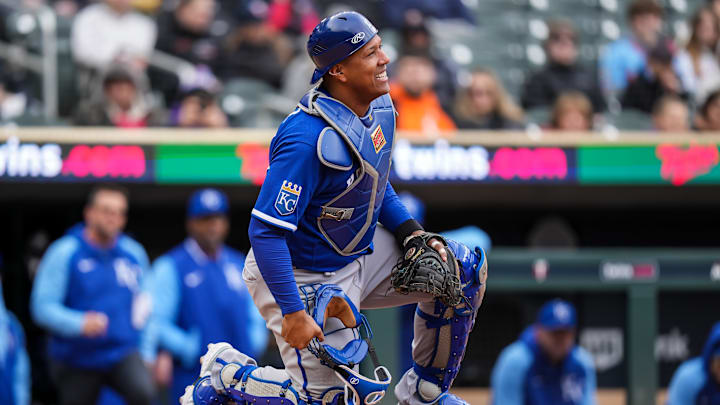The KC Royals must not trade away catcher and team captain Salvador Perez
The "trade Salvy" chatter is out there and easy to find. Just keystroke Perez's name into any search engine and the wait for stories and speculation about Kansas City moving him won't last long.
Some Perez-related Internet talk and writing is well-intentioned, designed to outline big deals the Royals might make to shake up and improve an organization mired in trouble. Much, however, is clickbait and nothing more.
What matters, of course, is what the Royals want to do and with whom they want to do it. The club probably doesn't want to trade Perez.
But should they trade him? The argument is certainly makeable: more baseball is behind than in front of him, time to net a decent return for him may soon be gone, and dealing him could save the Royals all or part of the $62 million-plus left on his contract when the season began.
But Perez remains the face of the franchise and favorite of its fans and shows no significant signs of slowing down anytime soon—his 14 homers and 37 RBIs lead the club, he's hitting .275, and he catches far more often than not. And as its strongest veteran presence and leader, he's invaluable to a club teeming with young, inexperienced players fighting to find their way.
Two things could make all the Perez trade talk moot: his 10-and-5 rights and the club responding to the chatter with an emphatic and unequivocal public denial.
As a player boasting 10 years of major league service time and playing the last five seasons only for his present team, Perez can nix any deal involving him. And he just might consent to a trade. Few players want to stay with a team trying to move them to another club, and only a contender will pursue him, meaning he could taste the postseason again, an opportunity he may never again get in Kansas City.
And what of the club? Perhaps it's already issued its denial: Picollo, certainly an authoritative source on the subject, recently told Kansas City Star Royals beat writer Jaylon Thompson "We don't have any intention of trading Salvy, and it's not something we are looking to do."
And the third mistake KC must avoid?
